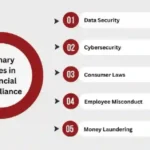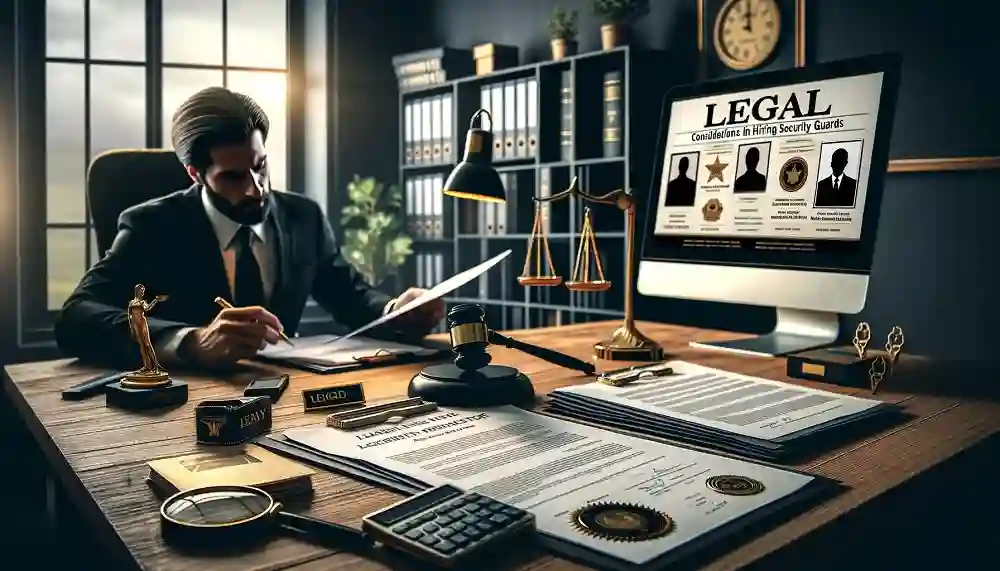Running a business? Protecting your property, employees, and customers is probably at the top of your to-do list. But here’s the kicker: When it comes to safeguarding your business, hiring private security might be the move. That said, before you hire, you’ve gotta get familiar with the legal side of things. It’s not just about putting someone at the front door with a walkie-talkie. Nope—there are rules, licenses, and plenty of fine print to navigate. But don’t worry, we’ve got you covered.
What Does Private Security Even Mean?
Alright, before diving into all the paperwork, let’s break it down. Private security isn’t just about having a guy in a uniform hanging out in front of your store. It’s a full-service gig. Think everything from monitoring surveillance, guarding entrances, checking ID badges, to patrolling your premises. You know, basic crime prevention stuff.
The goal is simple—private security deters bad guys, manages access, and, most importantly, gives your customers and employees peace of mind.
But there’s a twist. Here’s the thing: The laws around private security vary depending on where you live. So before you sign a contract, you need to make sure everything’s legal. Trust me, I’ve learned the hard way: Don’t skip over the fine print.
Private Security License Requirements
First thing’s first—make sure the security team you hire is actually licensed. Not every “security guard” out there is legit. So, how do you tell? It’s pretty straightforward, actually.
- Training: Security officers need to be trained in basic procedures, like using surveillance systems, handling emergency situations, and (wait for it) avoiding the urge to play superhero.
- Background Check: You think your background checks are tough? Well, these guys get grilled. And for good reason. You don’t want anyone with a criminal record working the front desk.
- State Certification: Most states require a state-issued license. So, check and double-check that your security firm is legit before you go any further.
I know, I know—sounds a little like overkill. But trust me, the last thing you want is for your hired help to be, well, not legally hired.
Responsibilities of the Private Security Firm
Okay, so you’ve found a licensed, certified team to guard your business. But what are they actually responsible for? That’s the million-dollar question.
Duties of Security Guards
So, what exactly are security guards supposed to be doing while you’re busy running your empire? They’ve got a few core duties:
- Monitoring Security Systems: They’re the ones who check the cameras and alarms, ensuring everything’s up to snuff. If something goes wrong, they notify the authorities.
- Access Control: No randoms are getting past the gates. Guards manage who comes and goes, keeping the riff-raff out (and you, probably, too).
- Conflict Management: If there’s an issue—say, someone’s trying to steal your merch—security’s got it. They’ll handle it, and hopefully, without calling for backup too quickly.
I mean, I wouldn’t trust just anyone with this kind of job. The dude I once hired for a wedding didn’t even know how to tie a tie, much less handle a situation. I learned my lesson there.
The Importance of a Solid Contract
So, now you know what they do, but here’s where the magic happens: The contract. If you’re hiring private security, you need a crystal-clear agreement that spells out:
- What’s covered: How many hours of coverage do you need? What areas need to be monitored?
- Termination: Because let’s face it—sometimes things don’t work out. Make sure the contract includes an easy exit strategy, no questions asked.
- Insurance: Does your security company have liability insurance? If something goes south, you’ll need to know you’re covered.
- Liabilities: Who’s responsible for what? If a guard messes up, you don’t want to be stuck with the bill.
And seriously, read it like it’s the last page of a suspense novel. You don’t want surprises down the road.
Why You Need Private Security: Risk Management
Hiring private security isn’t just about avoiding a robbery. It’s about managing risk. Sure, you’re not trying to be the next Batman, but the reality is, private security can be the difference between keeping your business running smoothly or dealing with some serious headaches.
Crime Prevention
Here’s something you probably didn’t know: The mere presence of private security can cut down on crime. When criminals see a guard posted outside, they usually look for an easier target. Trust me, the last thing you want is to make your business an easy target for bad actors.
Employee Protection
Now, here’s a kicker: Your employees need protection too. If you’re running a retail space, for example, there’s always that chance of a disgruntled customer or an altercation. Private security can step in before things escalate. And let’s be honest—no one wants to deal with a fight in the middle of their workday. My buddy Tim had a run-in with an angry customer once, and let’s just say, his attempts at diffusing the situation weren’t as graceful as he thought.
Legal Liabilities When Hiring Private Security
So you’ve got your security guard. You’re feeling good. But wait, what about the legal stuff? Yeah, there’s more. When you hire private security, you’re responsible for what happens, both legally and financially.
Excessive Use of Force
Security guards aren’t cops. And while they are trained in self-defense, there’s still a fine line between self-defense and, well, going a little too far. If a security guard gets trigger-happy, your business could be on the hook for damages. I’ve seen it happen—it’s messy, and you don’t want any part of it. Keep things professional.
Privacy Concerns
Alright, so you’re probably using security cameras around your property, right? It’s a good idea—until you start invading privacy without realizing it. Some states have strict laws around surveillance, and you don’t want to get hit with fines for that. So before setting up cameras, double-check the legal stuff. Trust me, it’s worth it.
Wrongful Arrests
Here’s a fun one: Security guards have the authority to detain people, but they can’t arrest them like a cop. The legal jargon gets tricky, but the bottom line is that if your guard messes up and wrongfully detains someone, you could be in trouble. Always ensure your team follows protocol.
Final Thoughts on Hiring Private Security
Hiring private security isn’t just a luxury. It’s an investment in protecting your business. But don’t rush in. Take time to check credentials, understand your responsibilities, and get the legal stuff in order. The right security team can provide a ton of benefits, from crime deterrence to peace of mind.
Fast forward past a bunch of unnecessary headaches, and you’ll see that private security is totally worth it—if you know what you’re doing. Just make sure you’re not signing up for any surprises along the way.










Important Posts
How to Ensure Compliance with Financial Security Regulations
Legal Guidance & Practical Security Tips for Everyday Protection
Law & Security Updates: The Latest Legal News & Essential Safety Tips